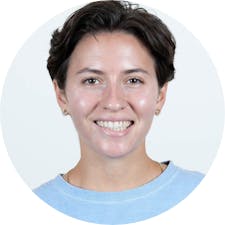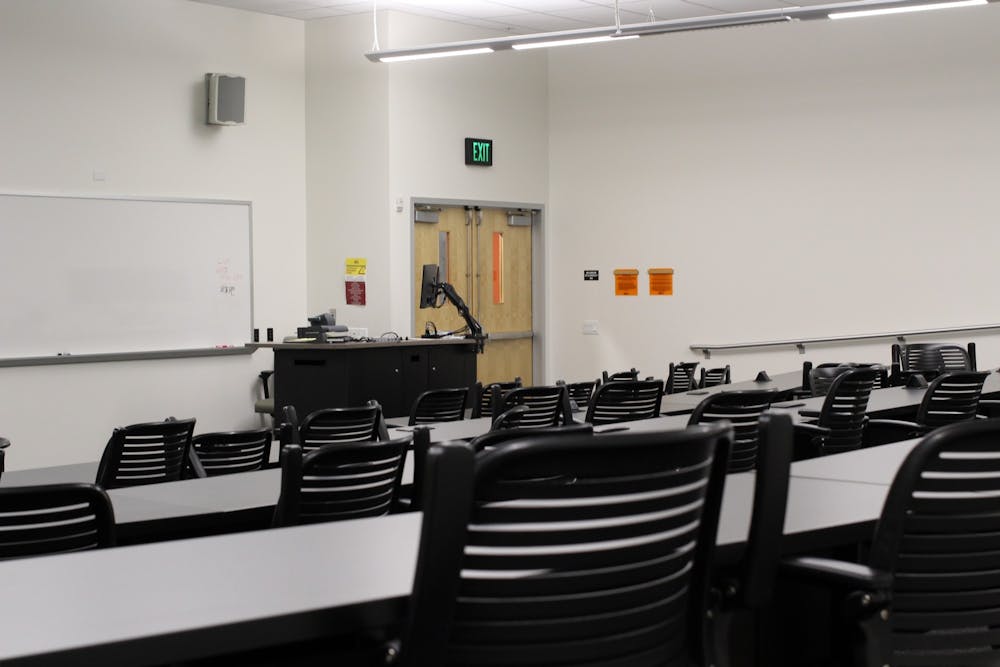Attending college means choosing from a wide range of classes, which can oftentimes be intimidating. But for students at ASU, some of those classes can offer more excitement than others.
The State Press spoke to students across majors to find out which classes impacted them the most at ASU. The students said classes where they could discuss with their peers about the subject matter while the professor moderated and guided them led to some of the best classroom experiences.
For the professors too, a classroom where students can think deeper about the subject and find enthusiasm in it led to better student performance.
College is all about critical thinking, taking multiple perspectives, analyzing them, and determining what the different perspectives mean, said Jessica Viñas-Nelson, assistant professor in the School of Social Transformation.
Below are a list of classes students said impacted their education the most.
SWU 306: Ethics in Social Services
The casual and conversational nature of SWU 306, offered every fall and spring semester, is what Michelle Irwin, a junior studying social work, points to as the most important part of the class.
Claire McLoone, a teaching assistant professor in the School of Social Work, focuses the class on everyday ethics in social work, bringing up “what would you do” kind of topics, such as when to use Narcan and how to deal with fentanyl overdoses, Irwin said.
“It's more real-life day-to-day stuff instead of handmade scenarios that are put in a textbook,” Irwin said.
McLoone said almost every day social workers face some form of an ethical dilemma, which is what makes the class so important. As the code of ethics in social work is a nuanced topic with endless things to pick apart and discuss.
Students are able to bring up different points of view and point out tough decisions that have to be made in the social services field.
McLoone, a licensed social worker, puts the learning on her students by stepping back when students are connecting with one another, and stepping in when they need guidance or help.
“A lot of unethical things have happened in the name of helping others," McLoone said. "Especially in the history of social work and social services, so I think that it's extremely important to learn from some of our problematic past as we enter into this new phase of the profession."
Students want to hear about real situations and what they are going to be facing, so McLoone makes sure the class is not abstract at all.
MAT 353: Mathematics and Cancer
Mathematics and Cancer was a refreshing break from the repetitiveness of problem-solving for Nathan Nguyen, a spring 2021 ASU graduate with a B.S. in mathematics.
Randomly choosing the class after finding the name intriguing, it turned out to be one of the most impactful classes Nguyen took during his time at ASU, as it taught about the underlying dynamics of life using math.
“When I read ‘mathematics and cancer,’ that caught my eye because I never really learned math in that context, other than just problem-solving or physics,” Nguyen said.
The class, which was last taught in the fall of 2019 by Abba Gumel who has since left ASU, opened up a whole new world of mathematics, including the field of cancer research, Nguyen said.
Nguyen said Gumel, a former professor of mathematics at the School of Mathematical and Statistical Science was enthusiastic about the subject and brought other applications of math from his work in infectious diseases.
Gumel emphasized learning, rather than just doing homework. If a student did not understand a topic, he would pause class to discuss the topic more because he felt that it was more important for the student to understand what was going on.
SOS310: Equity, Justice and Sustainability
After taking multiple classes about how to fix sustainability problems, SOS 310 addressed why new changes in sustainability are needed, said Ciera Parkhurst, a senior studying sustainability.
The shifted focus from the present day to historical errors, how to fix them and what is owed to future generations is a big theme that stuck with Parkhurst.
The seminar-style class, which is offered every semester, helped students think outside of the protection of the human race to different ecosystems and living beings, Parkhurst said.
Sonja Klinsky, an associate professor in the School of Sustainability, and designer of the class, was open to hearing students’ perspectives and was not afraid of playing devil’s advocate to help students think harder, Parkhurst said.
“The purpose of this class is to ensure that every student who goes through our program on sustainability at the undergraduate level has at least some exposure to thinking about issues of justice,” Klinsky said.
Major changes have been made to the class since it first entered the University in 2013. Klinsky makes sure issues that students care about are covered and that it includes a diverse and updated array of reading.
“I think teaching classes about justice are very exciting because unfortunately, many young people don't get asked their opinions about justice very often,” Klinsky said.
HST 333/AFR 363: African American History to 1865
Learning history from an African American perspective is what Marnie Jordan, a sophomore studying journalism and mass communication, found the most impactful about AFR 363, which she is currently taking.
“It kind of changed the way I saw history," Jordan said. "Now I see textbooks as telling one side of a story in a way because you only get the white historian perspective."
HST333/AFR363 fills in the incomplete picture many students come to the class with, and they are able to understand the present day much better, Viñas-Nelson said.
Most importantly, Viñas-Nelson gives students the opportunity to read literature by primarily Black voices.
“Especially as a white professor teaching this subject, I prioritize hearing from Black people themselves," Viñas-Nelson said. "It's just remarkably disappointing how few have had an opportunity to read from Black people before and I have this wealth of amazing sources for them to pull from."
Even though it's a trope to say you can’t understand the present until you understand the past, Viñas-Nelson sees the understanding in her students’ eyes.
“The connections they're making to current events, it's like puzzle pieces being clicked into place in their minds throughout the semester, as a history that they've, unfortunately, for the most part, never had access to and never been provided,” Viñas-Nelson said.
POS 435: Women and Politics
A last-minute decision on building her schedule made POS 435 the most impactful class for Reem Elsaad, a senior studying political science and global studies.
The class, which is offered every semester, brought to light many things that women do not think about before going into politics. With a clear-cut presentation of information and an impactful reading selection from Gina Woodall, a teaching professor in the School of Politics and Global Studies.
Woodall said topics include the political ambition gap, gender wage gap, equality in government and women in leadership positions.
“I already know as a woman of color and as a hijabi, I'm going to have to face some obstacles in my path, no matter what kind of job I decide to go into," Elsaad said. "But this class really puts it into perspective, just how difficult it can be."
The class is centered around the readings and discussion. If a student has a strong opinion and cannot find evidence to support their opinion in the reading, that is a problem, Woodall said.
Elsaad said she experienced classes where a male student shared misogynist ideas, but Woodall turns moments like these into a learning experience. Elsaad said if someone has a minority opinion, she will break down what they said and allow space for the rest of the class to voice their disagreements.
Correction: This story was updated on Nov. 20, 2022, at 5:40 p.m. to clarify Elsaad's experiences in a class.
Editor's note: This story was updated on Nov. 20, 2022, at 5:40 p.m. to remove a quote about the women and politics class that referenced a student’s feelings about men after taking the class to minimize harm to the professor of the class.
Edited by Jasmine Kabiri, Wyatt Myskow, Luke Chatham and Greta Forslund.
Reach the reporter at abickle@asu.edu and follow @AlyssaBickle1 on Twitter.
Like The State Press on Facebook and follow @statepress on Twitter.

Alyssa Bickle is a staff reporter, writing for the community and culture desk. She is a writing tutor for University Academic Success Programs, and a fellow in the Center for the Study of Religion and Conflict. She is pursuing bachelors degrees in journalism and political science.




